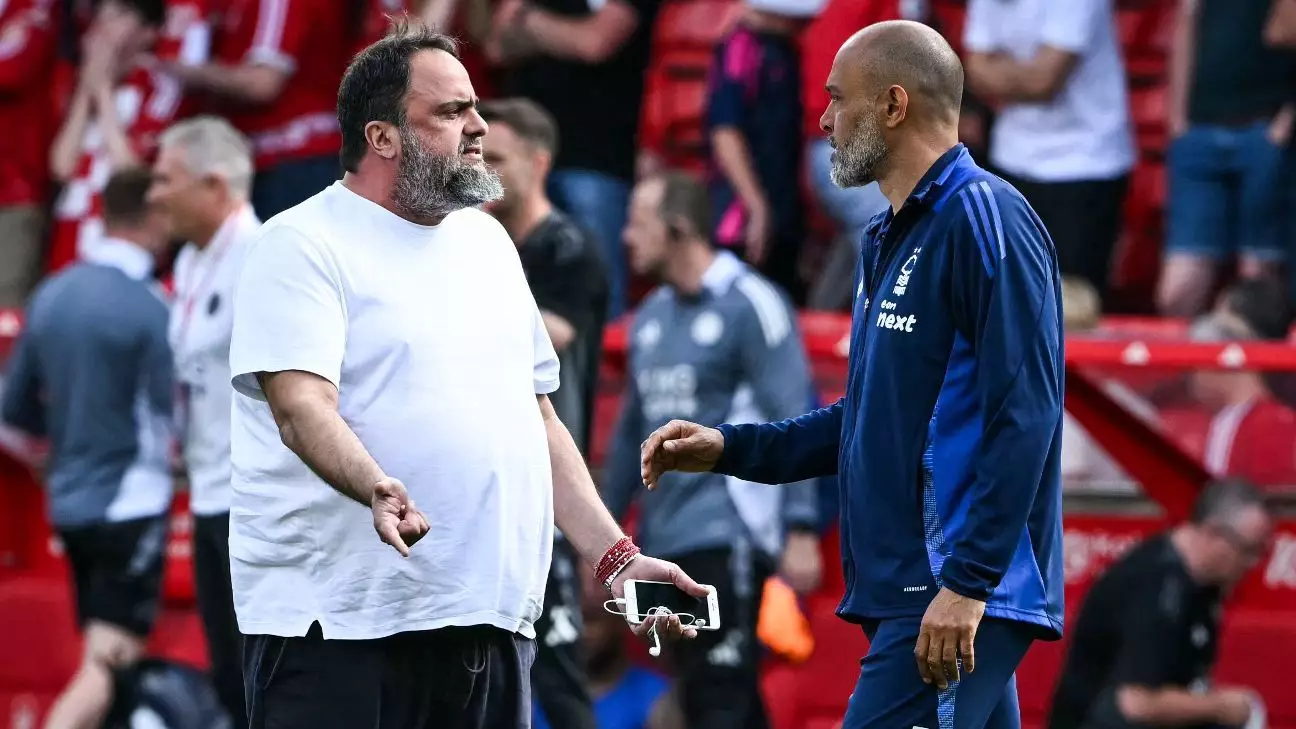In a recent clash between Nottingham Forest and Leicester City, the spotlight shifted from the pitch to the ownership when Evangelos Marinakis, the club’s owner, made an unexpected dash onto the field. This incident unfolded in the aftermath of a tense match that ended in a 2-2 draw, a result that hampered Nottingham’s ambitions for Champions League glory. Marinakis’ actions, while seen by some as unprofessional, can be better understood through a lens of passion and deep investment in his team.
It is crucial to acknowledge the emotional weight of sports—it’s not just about wins and losses, but how these outcomes impact players’ lives and futures. The pain of forward Taiwo Awoniyi, who was visibly struggling after a collision with the goalpost, ignited a visceral response in Marinakis. When a player suffers, it resonates deeply with those invested in the team’s welfare; hence, Marinakis’ reaction, albeit controversial, is a testament to his commitment to the club.
Leadership Beyond the Sidelines
The club released a statement attempting to contextualize Marinakis’ urgency, claiming that his actions were driven by “deep care” for Awoniyi. This reveals a significant aspect of leadership that transcends mere words. Marinakis was not just a distant figure in an executive suite but an owner who felt the necessity to act; his presence on the pitch indicated a profound emotional connection rather than a calculated corporate response.
In a world where owners often remain distant from the players and fans, Marinakis’ instincts show a critical deviation from the norm. When he saw Awoniyi struggling in pain, it struck a chord with him, leading to a knee-jerk reaction that can be interpreted as a passionate embrace of accountability and emotional investment. It raises an important question: should leaders remain on the sidelines during moments of crisis, or should they be prepared to dive into the fray?
Implications of Emotional Investment
While Marinakis’ actions may have sparked conversations about propriety, they also highlight an often-overlooked dynamic in sports management—authentic emotional investment. Sports teams thrive on unity and collective spirit, both on and off the field. An owner who is deeply engaged with the team’s welfare not only sets a precedent but also fosters an environment where players feel valued and supported.
To many, the narrative that emerges from Marinakis’ actions is one of loyalty and familial bonds within the team structure. It’s this kind of emotional connectivity that can enhance player performance, shift locker room dynamics, and ultimately translate into better results on the field. However, the delicate balance between passion and protocol remains a pertinent discussion, as there are indeed boundaries that need to be respected when it comes to interactions on the field.
In the aftermath of such incidents, one must reflect on how emotional responses can drive both positive outcomes and controversies. For Marinakis, his actions may seem instinctual and justified, but the broader implications raise a pressing question about the role of ownership in sports: should it be driven by emotional investment or guided by strategic restraint? The fine line between heartfelt action and overstepping authority remains a topic worth exploring further in the realm of sports leadership.

